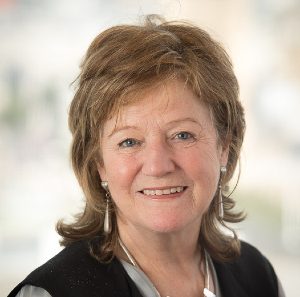
Do you support mandatory reporting of child sexual abuse, as proposed by the inquiry?
- Yes (88%, 83 Votes)
- No (12%, 11 Votes)
Total Voters: 94
Professionals must be under a legal duty to report child sexual abuse, and face criminal sanctions for not doing so, to tackle the systemic under-identification of CSA.
That was one of the key recommendations by the Independent Inquiry into Child Sexual Abuse (IICSA) in its final report, issued today, seven years after it was set up in the wake of institutional failings revealed by the Jimmy Savile and other abuse scandals.
The inquiry said evidence it had received had shown that found that “allegations and indicators of child sexual abuse were under-reported by adults who ought to have reported them”.
Improve your CSA practice
 Community Care Inform Children subscribers can take advantage of comprehensive practice guidance, delivered by the Centre of expertise on child sexual abuse, on our CSA knowledge and practice hub.
Community Care Inform Children subscribers can take advantage of comprehensive practice guidance, delivered by the Centre of expertise on child sexual abuse, on our CSA knowledge and practice hub.
It also urged the creation of Child Protection Authorities for England and Wales responsible for improving practice by statutory agencies and other institutions, advising government on policy and, where they consider necessary, inspecting organisations.
The inquiry further said that care staff working in residential settings in England, and youth custodial settings across England and Wales, should be subject to professional regulation, in the same way as social workers, a recommendation it had made previously.
It added that an independent body should be charged with setting and maintaining standards of training, conduct and continuing professional development, and with the power to enforce these through fitness to practise procedures.
Mandatory reporting requirement
The inquiry wants the UK and Welsh governments to legislate to require “mandated reporters” to report child sexual abuse to the relevant local authority or to the police, whenever they receive a disclosure from a victim or perpetrator, witness CSA or observe recognised indicators of the crime. It said the latter included sexualised or sexually harmful behaviour, physical signs of abuse or consequences of sexual abuse such as pregnancy or sexually transmitted diseases.
It would be a criminal offence for them not to report after receiving a disclosure or witnessing CSA. Abuse should be defined as any offence under the Sexual Offences Act 2003 committed against a child, except cases where the child is aged 13-16 and has not been harmed, the relationship appears consensual and there is no difference of maturity or capacity between the child and alleged perpetrator.
Mandated reporters should be comprise any police officer, anyone defined as carrying out a regulated activity with children under the Safeguarding Vulnerable Groups Act 2006 or anyone defined as being in a position of trust with a child under the Sexual Offences Act 2003. The latter two categories include social workers, Cafcass family court advisers, foster carers, children’s home staff, teachers and healthcare staff working with children, among many other groups.
The inquiry said similar arrangements were in place in most European countries and some parts of the US, Canada and Australia.
‘Systemic change needed’
The inquiry said its investigations had shown that “systemic change is needed to ensure allegations of child sexual abuse are reported”, with several cases of children making disclosures without action being taken to inform relevant authorities. Reasons for this included organisations’ desire to safeguard their reputations or “protect their own” and them not finding victims’ disclosures sufficiently credible.
It said 88.6% of its victims and survivors’ forum supported mandatory reporting.
Currently, in England, Working Together to Safeguard Children says anyone with concerns about a child’s welfare “should make a referral to local authority children’s social care”, doing so immediately in cases of suspected significant harm, such as child sexual abuse.
However, this is not a legal requirement, with the agencies bound by Working Together, such as councils, the police, NHS bodies and schools, being able to depart from it in exceptional circumstances.
There is a legal duty in Wales – under section 130 of the Social Services and Well-being (Wales Act) 2014 – on specified public bodies to report suspected abuse, neglect or harm of a child to the relevant local authority. However, the inquiry pointed out that the Welsh approach left gaps in relation to who was required to report – leaving out independent schools and voluntary and religious organisations – and involved no criminal sanctions for a failure to do so.
Mandatory reporting previously rejected by government
The UK government rejected the case for introducing mandatory reporting of child abuse by professionals in England – with criminal sanctions for those who failed to do so – in 2018, following a consultation. It found the likely increase in referrals risked creating a “needle in a haystack” making it less likely abused children would be identified.
However, the inquiry said that evidence from other countries showed that the introduction of mandatory reporting led to a significant increase in the number of children identified as in need of protection, and that this figure was higher in jurisdictions with mandatory reporting than those without it.
While CSA referral rates to local authorities are not recorded in England and Wales, the inquiry said the evidence suggested they were small, because CSA was identified in just 6% of children’s social care assessments, with child sexual exploitation (CSE) identified in 3.4%.
The review acknowledged concerns that mandatory reporting could deter children from disclosing abuse or families from seeking help, for fear of the consequences for family members and a desire for privacy and confidentiality.
However, it warned that not requiring reporting risked allowing perpetrators to continue to abuse.
Councils ‘must be sufficiently resourced’
While the inquiry said, in most cases, reports would need to be made to local authorities – with the police notified in an emergency – and stressed they would need to be sufficiently resourced.
“To ensure the effectiveness of any mandatory reporting duty, the government must ensure that agencies receiving reports are sufficiently resourced to be able to respond to any increase in reports about child sexual abuse that mandatory reporting laws generate,” the inquiry added.
Besides mandatory reporting, its other recommendations included:
- The creation of Child Protection Authorities (CPAs) for England and Wales, independent statutory bodies that would be repositories of expertise on child protection and tasked with improving practice, advising governments on policy and, where necessary, inspecting institutions. It said this would fill gaps in current inspection arrangements by subjecting non-statutory or unregulated organisations where children spend time and multi-agency child protection arrangements to checks. It also said the CPAs should be able to direct existing inspectorates, such as Ofsted, to carry out checks in certain cases.
- Introducing the regulation of care staff working in children’s homes in England and young offender institutions and secure training centres in England and Wales. After the inquiry recommended registration of children’s home staff in England by an independent body in 2018, the Department for Education commissioned a review of the issue, which was inconclusive, though it told the inquiry it would keep it under review. The inquiry said this response was inadequate, and that workforce regulation was necessary to better protect children in residential settings. The Independent Review of Children’s Social Care also recommended extending workforce regulation for children’s home staff, starting with managers, and the DfE is currently considering its recommendations and is due to report before the end of the year.
- A single redress scheme for victims of CSA and CSE connected to institutions in England and Wales, which would run for five years.
- Giving children in care, or others on their behalf, the right to apply to the family courts to rule on whether they are at experiencing, or are at risk of, significant harm, with the court able to make orders mandating or limiting the local authority’s exercise of its parental responsibility. This would apply both to children experiencing harm in their placement or those who experience abuse or exploitation as a result of an inappropriate placement or inadequate supervision.
- A guarantee of specialist therapeutic support for child victims of sexual abuse.
- A ban on the use of pain compliance techniques on children in custodial institutions.
- The creation of a cabinet-level minister for children in the UK government.
- Improvements in the availability of data on CSA through the creation of a single dataset covering England and Wales, including information on the characteristics of victims and alleged perpetrators, factors that make victims more vulnerable to CSA or CSE and the settings and contexts in which abuse occurs. The data should be published regularly and collated nationally, regionally and locally.
What the inquiry found
Based on 15 separate investigations which held public hearings, and over 6,200 accounts of child sexual abuse shared with its Truth Project, the inquiry concluded:
- Child sexual abuse and exploitation takes many forms but can involve vile and painful acts such as vaginal and anal rape.
- Children, particularly those who are sexually exploited, are often degraded and abused by multiple perpetrators.
- Historically, inadequate measures were in place to protect children from the risk of being sexually abused – sometimes there were none at all.
- Individuals and institutions often thought children were lying when they tried to disclose what was being done to them.
- Victims were frequently blamed as being responsible for their own sexual abuse.
- Within statutory agencies with direct responsibility for child protection there was too little emphasis on the complex and highly skilled work of child protection. Decisions about children were not unequivocally based on the paramount interests of the child
- Multi-agency arrangements still lack focus on child protection.
- There is still not enough support available to both child and adult victims and survivors.
- Child sexual abuse is not a problem consigned to the past, and the explosion in online-facilitated child sexual abuse underlines the extent to which the problem is endemic within England and Wales.
- The devastation and harm caused by sexual abuse cannot be overstated – the impact of child sexual abuse, often lifelong, is such that everyone should do all they can to protect children.
Scale of abuse ‘horrifying and deeply disturbing’

Inquiry chair Alexis Jay (credit: the Independent Inquiry into Child Sexual Abuse)
Chair of the inquiry Alexis Jay said: “The nature and scale of the abuse we encountered were horrifying and deeply disturbing. As a society, we simply cannot file it away and consider it a historical aberration when so much of what we learned suggests it is an ever-growing problem, exacerbated by the current and future threat of the internet.
“The publication of this report is the culmination of seven years of work. To the victims and survivors who have made such an immense contribution to our work, we will be forever grateful. I urge the UK government, the Welsh Government and all other relevant institutions to implement the Inquiry’s recommendations as a matter of urgency. Unless we are prepared to accept a world where our children, and their children, are always in danger of becoming victims of this terrible crime, action must be taken immediately.”
In its response, issued before prime minister Liz Truss announced her resignation today, the UK government said it would respond to the inquiry within six months.
Newly installed home secretary Grant Shapps said: “I am incredibly grateful to the thousands of victims and survivors who have bravely come forward to share their experiences with the inquiry, their bravery will not be forgotten.
“I will keep their voices front and centre in everything I do and I will ensure that the findings of the inquiry, and their invaluable testimonies, are acted upon.”
Wales’s deputy minister for social services, Julie Morgan, said: “This is a very important report, and the recommendations will now be given full and proper consideration. I make a further statement about how these will be taken forward once we have had a chance to consider them in full.”



 Family help: one local authority’s experience of the model
Family help: one local authority’s experience of the model  ‘I spent the first three months listening’: how supportive leadership can transform children’s services
‘I spent the first three months listening’: how supportive leadership can transform children’s services  How senior leaders in one authority maintain a culture of excellence
How senior leaders in one authority maintain a culture of excellence  How staff support ensures fantastic outcomes for children and families
How staff support ensures fantastic outcomes for children and families  Workforce Insights – showcasing a selection of the sector’s top recruiters
Workforce Insights – showcasing a selection of the sector’s top recruiters 

 Facebook
Facebook X
X LinkedIn
LinkedIn Instagram
Instagram
That legislation is needed to enforce what should have been happening anyway is a damning indictment of individual professionals and organisations who have colluded for years.. Makes people physically sick that on any level at all these have stood by and basically said ‘ not my job,not my moral responsibility ‘. Who on earth hears about such levels of abuse or even rumours and does not contact police? Same applies to vulnerable adults where predatory sexual abuse is rife. When you don’t report sexual abuse you condone you perpetuate and abusers know they can target with impunity.Utterly ,utterly failed.
Well said!
I remember all to well the days when as a duty social worker receiving those dreaded phone calls on a Friday with 10 minutes to closing time. A professional in health or education phoning to say they have been worried all week about a child and now passing on the information.